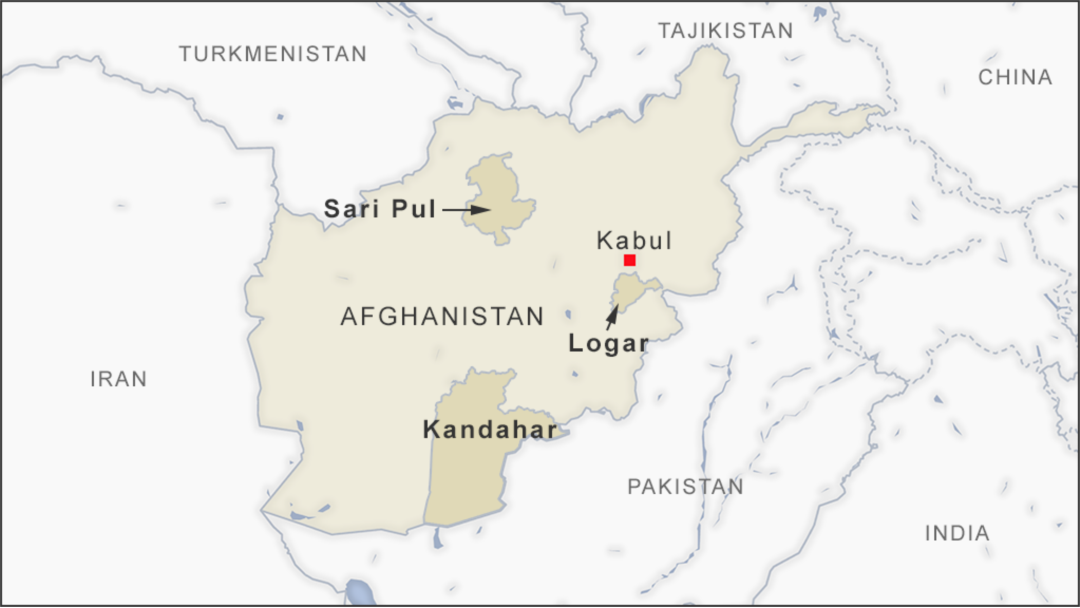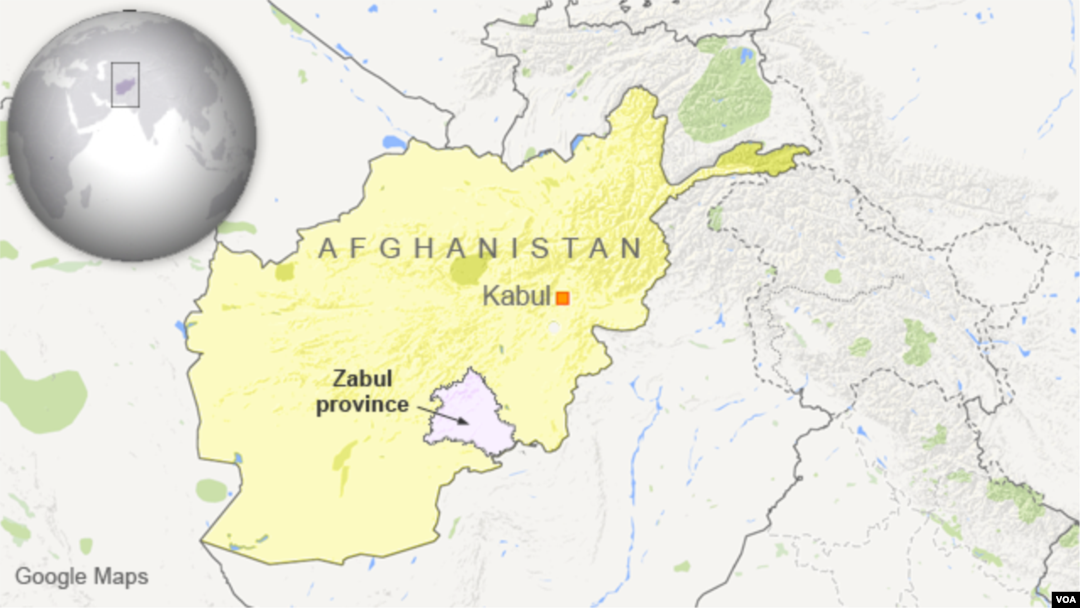Afghan officials said Friday fresh fighting in the southern province of Zabul has killed at least 15 members of the security force and 12 Taliban insurgents.
Separately, the United States military reported it has also conducted airstrikes in the south and elsewhere in Afghanistan to disrupt “coordinated" Taliban attacks against Afghan National Defense and Security Forces (ANDSF).
Gul Islam Sayal, a provincial government spokesman, told VOA that insurgents ambushed a “police reinforcement” convoy early Friday on the main highway linking Zabul with the Kandahar province.

Kabul and Sar-e-Pul, Kandahar and Logar provinces
Sayal said the government responded by sending additional police forces and aerial strikes to counter the Taliban raid. He did not discuss details of battlefield casualties.
But a security official requesting anonymity told VOA the clashes killed 15 Afghan highway police personnel and 12 insurgents. He said the Taliban also took away several military vehicles.
Separately, a spokesman for the U.S. forces in Afghanistan (USFOR-A) said an airstrike Friday targeted insurgents assaulting Afghan forces in Kandahar.
Col. Sonny Leggett gave no further details, noting this was the second airstrike the U.S. military had carried out in support of Afghan forces since Thursday.
“Overnight, USFOR-A conducted an airstrike against 25 armed Taliban fighters executing a coordinated attack on an ANDSF checkpoint in (western) Farah province. This afternoon, USFOR-A conducted a strike on Taliban fighters attacking an ANDSF checkpoint in Kandahar province,” he tweeted.
Leggett said the airstrikes were carried out in accordance with the agreement between the United States and the Taliban. The pact, signed on February 29, binds both sides not to attack each other’s forces. But the agreement allows the U.S. military to act in support of Afghan forces, if they are attacked.
“We reiterate: All sides must reduce violence to allow the peace process to take hold. These were the 1st U.S. airstrikes against Taliban since the start of the Eid cease-fire,” he stressed.
The Taliban and Afghan security forces declared a temporary cease-fire during three-day annual Eid festivities, which ended on May 26.
Battlefield hostilities have since resumed, with Taliban fighters launching major attacks and killing dozens of Afghan forces.
The renewed violence comes amid a slow-moving prisoner swap between the insurgents and the Afghan government stipulated in the U.S.-Taliban agreement.
Newly freed Taliban prisoners are seen gathered at Pul-i-Charkhi prison, in Kabul, Afghanistan, May 26, 2020.
Kabul is required to free 5,000 insurgent inmates in exchange for 1,000 government detainees held by the Taliban.
So far, the government has freed fewer than 2,400 prisoners while the Taliban has released 420 Afghan personnel.
The swap, once completed, would lead to opening of negotiations between Afghan parties to the war to agree on a permanent cease-fire and power-sharing arrangement after the withdrawal of international forces from Afghanistan.
The U.S.-Taliban pact requires all U.S. and coalition forces to leave Afghanistan by mid-2021, ending the nearly two-decade-long Afghan war, America’s longest.
The U.S. military drawdown started just days after the agreement was signed in Qatar to bring the number of troops down to about 8,600 by the middle of July before the full withdrawal next year.


